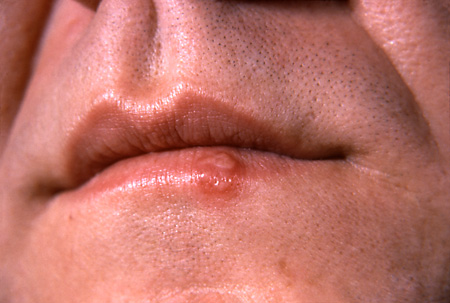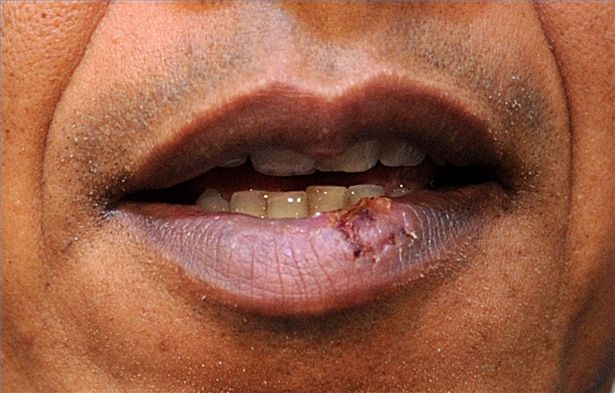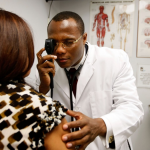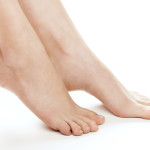How To Get Rid Of A Cold Sore And What Causes It?
Cold sores are caused by a contagious virus called herpes simplex. There are two types of herpes simplex virus. Type 1 usually causes oral herpes, or cold sores. Type 1 herpes virus infects more than half of the U.S. population by the time they reach their 20s. Type 2 usually affects the genital area (source: National Institute of Health, http://www.nlm.nih.gov/medlineplus/coldsores.html).
However, even if genital herpes are caused by Herpes Simplex Virus type 2 (HSV-2), a new study shows some cases of genital herpes that result to HSV-1 according to Rhoda Ashley-Morrow a doctorate researcher at the University of Washington. The study also shows that in the United Kingdom there are as many as 60% of new genital herpes infections that are transmitted due to HSV-1 and in Seattle, USA a third of new cases is caused by the same type of herpes simplex virus.
How Cold Sore Is Transmitted
Cold sore is also known as herpes labialis (lips) as the blisters occur in the lip area and because cold sore is a viral infection that is caused by the HSV virus, you can get and transmit it through direct contact i.e. kissing, sharing utensils, unsafe sex etc. although not conclusive, some researchers believed that people with HSV-1 can cause genital herpes through oral sex or if one’s genital gets contact with hands or other objects that has the virus even if genital herpes are commonly known to be caused by different strain of HSV or more accurately HSV-2.
Unsafe sex practice can easily spread the disease from one person to another however, it is also almost impossible to get rid of cold sore even when you practice safe sex because most people are not aware that they have the virus in their system. The virus is easier to transmit when they are active so avoid kissing or sharing utensils with persons who have symptomatic cold sore however, most cases of transmission occur during the infected person is asymptomatic.
Once Contracted, It Remains In Your System Until Reactivated
Cold sore is not a serious health condition and they usually go away in a couple of weeks or earlier when treated properly with medication but having a cold sore is very inconvenient and can impede one’s work. Sores in the mouth can be so painful especially when they get irritated and if you have full of it, it can interrupt with your normal eating.

Once you have the HSV virus type 1 or 2 in your system, it will never go away again because there is no known cure for the virus. HSV virus will then remain dormant in your nerve cells until reactivated which causes blister on the lips, mouth, cheek or tongue or other parts of your face. It is possible that you get frequent recurrence of the virus symptoms in a year or just once in your entire lifetime depending on your immunity.
How to get rid of a cold sore?
Cold sore is almost impossible to avoid because most people have been exposed to the virus. In fact, 90% of Americans have been exposed to the virus and most of them do not even know they have it unless it becomes symptomatic. So, it is easy to say that the herpes simplex virus 1 is a normal disease that people may contract. Technically, there is nothing you can do to get rid of the virus as there is no cure for it and most population are possible carrier.
However, when you speak about cold sore being a symptomatic outcome of the herpes simplex virus 1, there is something you can do to get rid of it faster than usual as there are treatments available that your physician may give you.
Diagnosis Symptom and Treatment for cold sore
Herpes simplex virus is commonly diagnosed through physical examination. Your physician will look for any apparent sores in the area that the virus affects and he will take a swab sample of the fluid on your sore which will be tested in the laboratory through the process called herpes culture. If there were no sores to take fluid sample from, a blood test will be administered and your physician will look for antibodies to HSV.
The most apparent symptom of cold sore is the blister on lip, inside your mouth’s cheek area and sometimes even on your tongue, nose and on the edge of the mouth. The blister that is caused by a cold sore breaks open and produces clear fluid. Other symptoms may include fever, swollen lymph nodes and sore throat.
Normally, cold sore will disappear on its own within 2 weeks of outbreak but there is treatment available to hasten the healing period and avoid infection that may cause complications. Antiviral medicines and pain relievers are effective treatment for cold sore and it also alleviates the patient’s condition against pain and discomfort during eating and drinking. Some antiviral medicines that are proven effective are the following and are available as a topical, oral and IV:
- Famciclovir
- Acyclovir
- Valacyclovir
- Carbenoxolone
Cold Sore And Cancer Sore, The Difference
For people who are not aware about cold sore, they may mistake it as a cancer sore because both blisters occur in the mouth however, unlike cold sore that is a cause of a virus, cancer sore’s cause is unknown. Canker sores appear as grey or white sores that have red inflamed are around it that generally occurs inside the mouth while cold sores appear outside the mouth or on the lip area and Cold sores appear in a cluster of blister which is unlike the canker sores which appear separately from one another.
No one exactly knows what triggers the onset of cold sore but most researchers agree that it could be attributed to low immune system so the best thing that you can do to get rid of the inconvenient outbreak of cold sore is to boost your immune system.
If you have further tips on how to get rid of the HSV-1 symptom you can share it below as you can help many people who suffers from the painful and uncomfortable blisters of cold sore.








